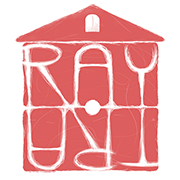(Prints size 80x120 cm)
There were interruptions to the electricity, water supply, and communications for five days. We didn't really understand what was going on around us. Conflicting information came from various sources. Everyone was busy rescuing food frozen in surrendered refrigerators. I was told about cars with Ukrainian flags in the city at the store where I went to buy food. Like that of many other Kherson residents, my psyche refused to believe what was happening. There was a high probability of provocations by the Russian military, dressed in the uniform of the Armed Forces of Ukraine, our media warned. From the very beginning of the occupation, I firmly believed that Kherson would be liberated, but I did not expect that this could happen so suddenly and so “quietly”. That there would be none of the shelling and street fighting which the Russian military used to intimidate. After conferring, my wife and I decided to go to the city center to check.
Cautiously and hesitantly, people gathered in the central square, which bears the symbolic name "Freedom Square". By the time we arrived, the Ukrainian flag was already flying not only on the pedestal where a monument to Lenin once stood but also over the city administration building. The pro-Russian posters, which had insulted our dignity for months, had already been rudely torn down and burned by this time. We saw them smoldering on the sidewalk, turning into symbolic ashes. Not only the city residents were cautious but so were the Ukrainian troops, who drove into the city in civilian cars to carry out reconnaissance. They looked clearly tired and tense. It seems that they, too, could not believe that the Russian military was no longer here and they peered intently into the crowd, expecting to see disguised soldiers there. I will always remember the symbolic scene in the square. One of the Armed Forces of Ukraine fighters climbed onto the roof of the SUV that brought him into the city, in order to video the crowd of grateful Kherson residents from a height. They saw him against the backdrop of a cinema with a huge inscription "Ukraine" and shouted in unison, "Kherson is Ukraine!".
I still did not fully believe that Kherson was under the control of the Armed Forces of Ukraine, but this was not the last test of my nervous system. I was yet to discover that lots of inhabitants remained in a city that had previously seemed extinct. It seems that all of them at once rushed to the roads and squares with flags to greet the Ukrainian soldiers. Cars festively signaled to passers-by with Ukrainian flags. There were quite a lot of children among them. Probably the largest crowd was at the intersection of Ivan Bohun and Cyril and Methodius streets. Three out of four lanes of the roadway were blocked by people. They stood in the middle of the road, waving flags, and when cars carrying Ukrainian soldiers appeared, they surrounded them from all sides to hug and to thank them. We did not hide our feelings, there were flowers and we had tears in our eyes, someone even knelt in the middle of the road. All this was very reminiscent of the celebration of the national football team’s victory in the World Cup, but practically no one was indifferent to it. The lack of electricity, heat, water, and communications could not overshadow the citizens’ joy. For almost nine months of occupation, we had had different feelings and been in different states. There were moments when doubts prevailed, there were also despair and apathy. But, as Rilke said: "Just keep going, no feeling is final."
When I came home I recalled the events of my pre-war peaceful life, and suddenly realized for myself that for many years in everyday decisions I had chosen to escape, betray, and build fences. First of all, from myself. After all, life at war and, even more so, under occupation, is the same peaceful life, but concentrated and accelerated: mistakes and false beliefs manifest themselves instantly and cost dearly. So what was it really: the desire to live or the fear of dying? I understood what the saying "burned bridges" means. That all the past years of my conscious life I had prepared myself to pass this test worthily. The city is free, we defeated the enemy. But to get this done, we had to liberate our inner Kherson from the invaders who occupied it so long ago that no one even remembers. Who hid in it unnoticed by the citizens, infiltrating all authorities and influencing all the decisions they made. Because everyone who decided to stay here and fight for freedom to the end, first of all, fought their own fear, an invisible ally of all dictators and atom bomb warlords.
Cautiously and hesitantly, people gathered in the central square, which bears the symbolic name "Freedom Square". By the time we arrived, the Ukrainian flag was already flying not only on the pedestal where a monument to Lenin once stood but also over the city administration building. The pro-Russian posters, which had insulted our dignity for months, had already been rudely torn down and burned by this time. We saw them smoldering on the sidewalk, turning into symbolic ashes. Not only the city residents were cautious but so were the Ukrainian troops, who drove into the city in civilian cars to carry out reconnaissance. They looked clearly tired and tense. It seems that they, too, could not believe that the Russian military was no longer here and they peered intently into the crowd, expecting to see disguised soldiers there. I will always remember the symbolic scene in the square. One of the Armed Forces of Ukraine fighters climbed onto the roof of the SUV that brought him into the city, in order to video the crowd of grateful Kherson residents from a height. They saw him against the backdrop of a cinema with a huge inscription "Ukraine" and shouted in unison, "Kherson is Ukraine!".
I still did not fully believe that Kherson was under the control of the Armed Forces of Ukraine, but this was not the last test of my nervous system. I was yet to discover that lots of inhabitants remained in a city that had previously seemed extinct. It seems that all of them at once rushed to the roads and squares with flags to greet the Ukrainian soldiers. Cars festively signaled to passers-by with Ukrainian flags. There were quite a lot of children among them. Probably the largest crowd was at the intersection of Ivan Bohun and Cyril and Methodius streets. Three out of four lanes of the roadway were blocked by people. They stood in the middle of the road, waving flags, and when cars carrying Ukrainian soldiers appeared, they surrounded them from all sides to hug and to thank them. We did not hide our feelings, there were flowers and we had tears in our eyes, someone even knelt in the middle of the road. All this was very reminiscent of the celebration of the national football team’s victory in the World Cup, but practically no one was indifferent to it. The lack of electricity, heat, water, and communications could not overshadow the citizens’ joy. For almost nine months of occupation, we had had different feelings and been in different states. There were moments when doubts prevailed, there were also despair and apathy. But, as Rilke said: "Just keep going, no feeling is final."
When I came home I recalled the events of my pre-war peaceful life, and suddenly realized for myself that for many years in everyday decisions I had chosen to escape, betray, and build fences. First of all, from myself. After all, life at war and, even more so, under occupation, is the same peaceful life, but concentrated and accelerated: mistakes and false beliefs manifest themselves instantly and cost dearly. So what was it really: the desire to live or the fear of dying? I understood what the saying "burned bridges" means. That all the past years of my conscious life I had prepared myself to pass this test worthily. The city is free, we defeated the enemy. But to get this done, we had to liberate our inner Kherson from the invaders who occupied it so long ago that no one even remembers. Who hid in it unnoticed by the citizens, infiltrating all authorities and influencing all the decisions they made. Because everyone who decided to stay here and fight for freedom to the end, first of all, fought their own fear, an invisible ally of all dictators and atom bomb warlords.

